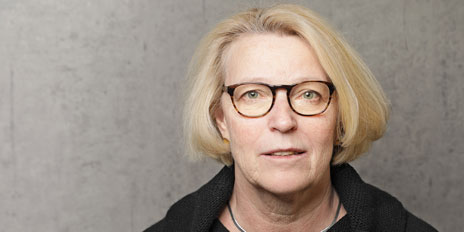“The economic strengthening of women is a marathon.”
In none of the G20 states are women economically equal. Also not in Germany. In the network Women20, Mona Küppers is fighting for a change.

Germany. The Women20 Summit from24 to 26 April 2017 in Berlin is one of several dialogue forums with civil society at the G20 Summit in July2017 in Hamburg. The Deutsche Frauenrat (DF)(German Women’s Council) and the Verband deutscher Unternehmerinnen (VdU) (Association of German Women Entrepreneurs) have the mandate to organize the Women20 dialogue process. In this interview, the DF chairwoman, Mona Küppers, talks about the network’s goals.

Ms Küppers, who is coming to the Women20 Summit in Berlin and what expectations do you have as a co-organizer of the conference
For the W20 Summit we’re expecting about 100 delegates from the G20 member states and from relevant international organizations – representatives of women’s and social associations, women entrepreneurs, scientists and scholars. In Berlin they will discuss the challenges confronting the equal participation of women in the labour market, access to financial resources, and the digital transformation. Since February, there’s been a lively discussion on our W20 digital platform. Our common goal is to anchor the issue of economic participation and the strengthening of women firmly in the G20 objectives as a cross-cutting task. Women20 must also become a stronger voice in the concert of G20 dialogue groups. Since the start of the German G20 presidency, we’ve therefore already held an entire series of W20 dialogues in Germany, but also at the United Nations and in Argentina, and are engaged in an intense dialogue with the German G20 sherpa and other G20 groups.
Can the issues which are important for women and for which they are fighting be brought under a common denominator irrespective of national borders?
It’s sad but unfortunately true: in none of the G20 member states have women achieved economic equality with men. On average, women are paid less, have fewer opportunities of advancement and also do most of the unpaid house, educational and care work. Various studies show that it’s significantly more difficult for women to come by investors or credit. On average, women are less likely to be online and more likely to have no or low digital literacy. As a result, they are exposed to a much higher risk of becoming social and economic losers of the digital transformation. What also unites us in all the G20 member states: in all it is important to achieve full legal equality of women and to combat the male-dominated power monopolies, stereotypes and prejudices.
How do you assess the situation of women in the German economy in a global comparison? In which fields is there the greatest need to catch up?
First, according to the OECD, in no other European country is the gender pay gap greater than in Germany. Against this background and view of the differing occupational biographies, a self-reliant life for women into old age remains a big challenge. To come to grips with it we need a consistent policy towards equality, women, family, the labour market and social concerns.
Secondly, Germany also fails to present a good picture with respect to the framework conditions for reconciling the demands of profession and family: the social infrastructure for child care and home care needs to be developed across the board, with a view to the relevant needs and high quality. State-ensured household-related services should also be promoted, among other things with the aim of making them accessible to all families.
Thirdly, in Germany the scientific, technological and digital skills of girls and women must be specifically promoted – by kindergartens, schools, universities and occupational and company training – and this life-long.
Has the women’s quota for directors of market-listed companies, which was introduced in January 2016, had an effect? Is a quota the best instrument for advancing the equal participation of women?
The statistics are clear: in the absence of quotas, almost nothing happens. It’s still too early to draw a conclusion, but we can learn from other G20 countries. In Norway, for example, a quota of at least 40 per cent women in supervisory boards of market-listed companies has been law since 2006. The proportion of women has accordingly grown rapidly. The example of Norway shows, however, that this mandate affects only an exclusive circle of top executives unless significantly more women obtain leadership positions across all sectors and levels brought about by incentive measure specifically supporting women. We need to target this in Germany.
What are your expectations for the G20 Summit under the German presidency? And what’s next for W20 after the G20 Summit?
We’re on the way from the side table to the negotiating table of the G20. The economic strengthening of woman is a main concern of the Federal Chancellor Angela Merkel. We’re therefore banking that the G20 under the German presidency will finally adopt a consistent gender perspective, with binding and measurable goals. In the run-up to the G20 Summit at the beginning of July, we will therefore cultivate an intensive dialogue. Parallel to this, we’ve already been working closely with Argentine women’s associations, which W20 will continue doing in coming year. Because W20 and the economic strengthening of women aren’t a sprint but a marathon.

